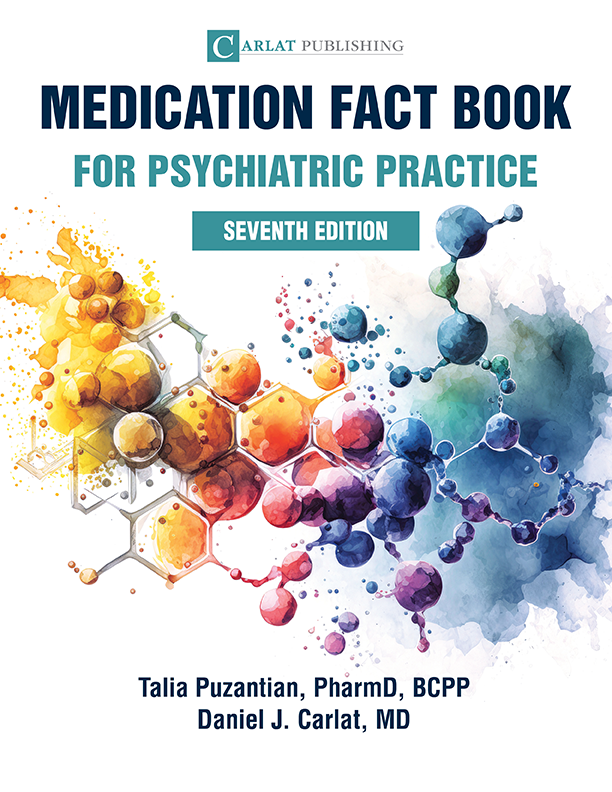General Psychiatry
Psychopharmacology for Patients With Intellectual Disability
 Julie Gentile, MD
Professor of psychiatry at the Boonshoft School of Medicine, Wright State University. Project director for Ohio’s Coordinating Center of Excellence in Mental Illness & Intellectual Disability.
Dr. Gentile has disclosed that they have no relevant financial or other interests in any commercial companies pertaining to this educational activity.
David Dixon, DO
Clinical chief resident, Wright State University, Department of Psychiatry.
Dr. Dixon has disclosed that they have no relevant financial or other interests in any commercial companies pertaining to this educational activity.
Julie Gentile, MD
Professor of psychiatry at the Boonshoft School of Medicine, Wright State University. Project director for Ohio’s Coordinating Center of Excellence in Mental Illness & Intellectual Disability.
Dr. Gentile has disclosed that they have no relevant financial or other interests in any commercial companies pertaining to this educational activity.
David Dixon, DO
Clinical chief resident, Wright State University, Department of Psychiatry.
Dr. Dixon has disclosed that they have no relevant financial or other interests in any commercial companies pertaining to this educational activity.
Interviewing and Evaluating Patients With Intellectual Disability
 Julie Gentile, MD
Professor of psychiatry at the Boonshoft School of Medicine, Wright State University. Project director for Ohio’s Coordinating Center of Excellence in Mental Illness & Intellectual Disability
Dr. Gentile has disclosed that she has no relevant financial or other interests in any commercial companies pertaining to this educational activity.
Julie Gentile, MD
Professor of psychiatry at the Boonshoft School of Medicine, Wright State University. Project director for Ohio’s Coordinating Center of Excellence in Mental Illness & Intellectual Disability
Dr. Gentile has disclosed that she has no relevant financial or other interests in any commercial companies pertaining to this educational activity.
Psychotherapy for the Intellectually Disabled: The Skills System Approach
Julie F. Brown, PhD, MSW.
Director of the Skills System at Justice Resource Institute and an adjunct faculty at the Trauma Center at JRI in Brookline, MA.
Dr. Brown has disclosed that she consults with agencies about implementing the Skills System Therapy Technique. Dr. Carlat has reviewed this article and has found no evidence of bias in this educational activity.
Read More
A Cautionary Consensus on the Use of Ketamine for Depression
Taylor Walker Noriega, PharmD candidate (2018)
Ms. Noriega has disclosed that she has no relevant financial or other interests in any commercial companies pertaining to this educational activity.
Read More
Beginning Antidepressant Treatment: A Recommended Approach
Michael Posternak, MD
Psychiatrist in private practice in Boston, MA
Dr. Posternak has disclosed that he has no relevant financial or other interests in any commercial companies pertaining to this educational activity.
Read More
When First-Line Depression Treatments Don’t Cut It: Newer Antidepressants and Sometimes, Antipsychotics
 Michael Gitlin, MD
Director of the Outpatient Mood Disorder Program at UCLA, as well as author of The Psychotherapist’s Guide to Psychopharmacology (Free Press)
Dr. Gitlin has disclosed that he has no relevant financial or other interests in any commercial companies pertaining to this educational activity.
Michael Gitlin, MD
Director of the Outpatient Mood Disorder Program at UCLA, as well as author of The Psychotherapist’s Guide to Psychopharmacology (Free Press)
Dr. Gitlin has disclosed that he has no relevant financial or other interests in any commercial companies pertaining to this educational activity.
 Daniel Carlat, MD
Editor-in-Chief of TCPR
Daniel Carlat, MD
Editor-in-Chief of TCPR

_-The-Breakthrough-Antipsychotic-That-Could-Change-Everything.jpg?1729528747)



